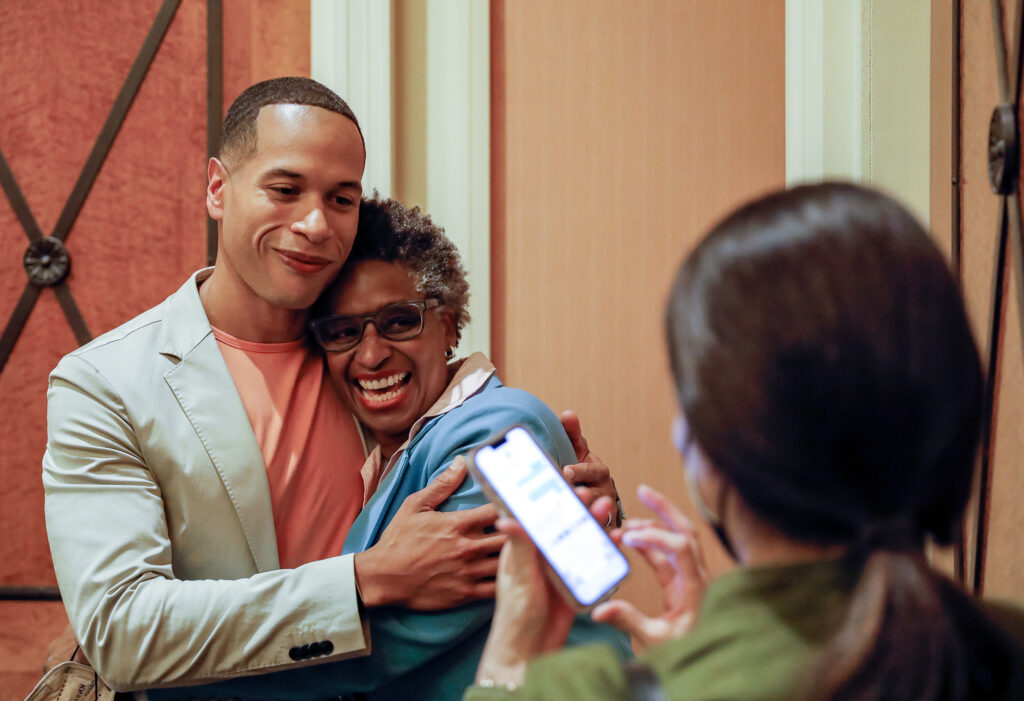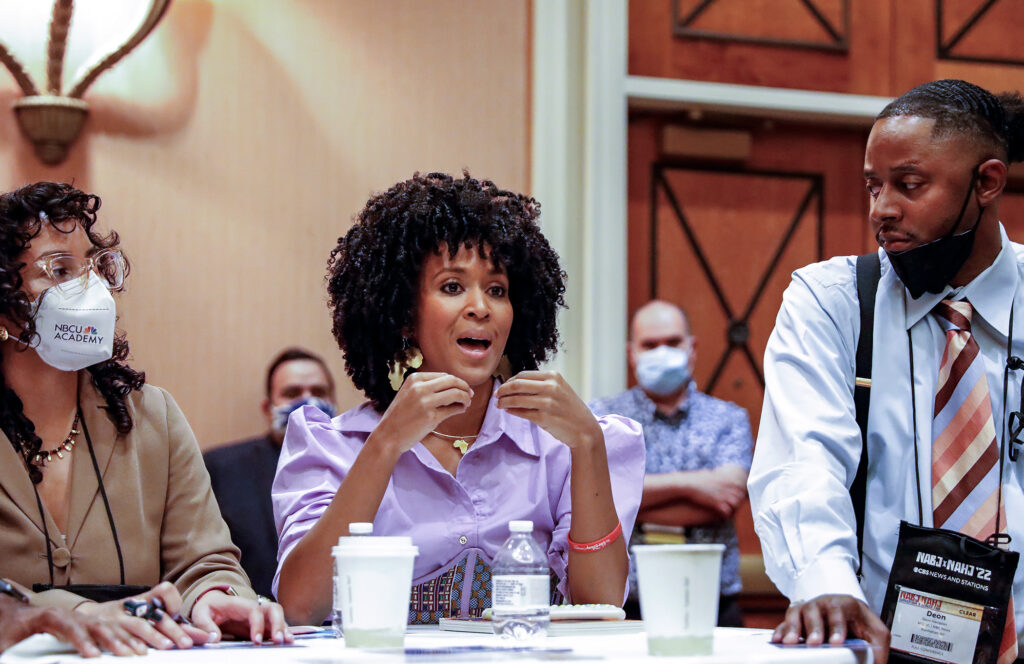Afro-Latino journalists praise inclusivity at NABJ, NAHJ joint conference

The conference room was standing-room only by the time the session began.
The three-person panel sat at the front of a windowless conference room filled with journalists from around the country.
In a chair in the third row, Ruthy Muñoz leaned in. As the conversation slowed, she raised her hand, cleared her throat and began.
“I had to come to terms with a lot of the ignorance of growing up,” Muñoz said, tears welling in her eyes but never spilling over, down her face. “Just accepting me for who I am.”
The audience around her was still, the quiet in the room sharp with attention.
“I now can say I am Afro-Latina,” she said.
It was a rousing moment at the “Two Worlds — Afro-Latinx in the Newsroom” panel at the National Association of Black Journalists and National Association of Hispanic Journalists joint conference. NAHJ’s Afro-Latino Task Force, which was started in 2021 and one of whose members sat on the panel Thursday, organized the session.
NAHJ President Nora Lopez said recognizing and creating room for the experiences of Afro-Latinos in the industry — and the intersectionality of their identities — is an important mission for the nonprofit. Its task force meets regularly to plan events, ensure NAHJ programming is representative of its diverse membership and, this year, established a new scholarship for Afro-Latino students pursing journalism careers.
“There was a real concern that we needed to step up and do more for our Afro-Latino colleagues and recognize that their experience is different,” Lopez said.
According to a 2022 study conducted by the Pew Research Center, nearly 6 million adults in the U.S. — 12% of the U.S. Latino population — identified as Afro-Latino, a term used to refer to people of Latin American dissent who also have African ancestry.
Lopez said NAHJ has struggled to accurately count how many members identify as Afro-Latino because members do not always check off the demographics boxes on the membership forms.
Still, the organization, she said, hopes to incorporate more programming aimed at Afro-Latino members.
“We know we have a lot of work to do,” Lopez said. “This is just the beginning.”
Yvonne Latty, a journalist and professor at New York University, is the co-chair of NAHJ’s Afro-Latino task force. She said that there are nearly a hundred members who identify as Black Latinos and the task force has tried to spotlight the Afro-Latino experience both within and outside of the nonprofit.
The experiences of Black Latinos, Latty said, have historically not been a focus of past conferences and NAHJ events.
Adriana Diaz, an Afro-Latina journalist who works as an anchor for CBS Weekend News, said she has attended multiple NAHJ conferences over the years — and none have felt as inclusive as the 2022 event schedule did.
“This convention has felt different for me from an Afro-Latina perspective because we had programming focus on the Afro-Latino experience,” Diaz said.

The panel of three journalists — Natasha Alford, the vice president of digital content at the Gio and a CNN political analyst, Aisha Al-Muslim, a senior editor for the Wall Street Journal’s internship program, and Alex Perez, an ABC News correspondent — have intersectional identities that allow them to move in between and among different communities.
Muñoz said seeing representation like this on panels and in the convention was inspirational.
It reminded her of the 2018 convention, where at an awards luncheon in Miami she met Ilia Calderón, who made Univision history by becoming the first Afro-Latina anchor.
“I cried like a baby — I could not speak,” Muñoz said. “The impact of finally having someone that looked like you break the glass ceiling […] I think it hadn’t really hit me until that moment.”
Muñoz hopes NAHJ will continue to make space for these stories and its Afro-Latino members. She said it will take “a mindset change,” but remains optimistic that more vulnerable conversations will lead to greater understanding.
“We have a lot of hopes,” Munoz said. “But, you know, all these problems weren’t built in one day, so to be able to address them, it’s going to take time.”
Nicholas Hernandez is a graduate student at the Craig Newmark Graduate School of Journalism in New York City. His reporting primarily focuses on the arts and culture scene in New York and the Bronx. He is an intern at Reasons To Be Cheerful, an online solution journalism magazine. Reach him at Hernandezn714 [at] gmail [dot] com.